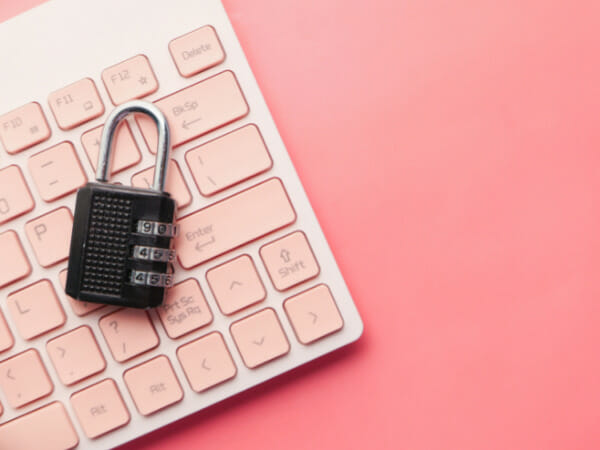Cryptojacking – Are You Mining Cryptos Without Knowing It?
As the cryptocurrency trend grows, people find new ways to use this digital asset. For example, it can help folks sell digital media and provide them with new financing options. Unfortunately, people figured out to use it for nefarious purposes.
Cryptojacking is one of those methods that have been more common lately. If you’re not careful, this could hamper the performance of your PC, and it may even degrade your devices faster than expected. What is cryptojacking, and how can you keep it away from your gadgets?
Before we talk about this relatively new way of hacking, we will have to discuss how cryptocurrencies work. After that, we can talk about how a cryptojacking attack can occur. More importantly, you will learn how you can stop and prevent such data breaches.
Overview of cryptocurrency

Cryptojacking is a combination of two words: cryptocurrency and hijacking. The latter is a verb that refers to the act of taking control of something. The other word is a bit more challenging.
You may have heard of cryptocurrency in news reports as some sort of get-rich scheme. If not, perhaps you know it as some form of “internet money.”
More people around the world are using it nowadays, but many of them still don’t understand how it works. Cryptocurrency is an important part of cryptojacking, so we will have to talk about it first.
The first one was bitcoin (BTC) which came out in 2009. A person or a group that goes by Satoshi Nakamoto released it to create a new global financial system.
The current one relies on governments and banks to function. There isn’t any other choice, so people have to make do with the high transaction costs and poor service.
On the other hand, bitcoin aims to create a financial system that relies on a decentralized computer network. People can volunteer with their personal computers to operate it.
They can take part in what’s known as cryptocurrency mining. These volunteers called miners can lend their computing power to verify bitcoin transactions.
Encryption protects each one, and it’s up to the miners to figure out the code that breaks it. This requires tremendous computing power, and miners must compete to get that code first.
The winner gets to add a new block of data to the crypto network. This is why people also call it blockchain. What’s more, they earn the proof-of-work for their efforts.
This allows the miner to earn mining rewards in the form of more bitcoins. This mining process is also known as the proof-of-work model. At the time of writing, bitcoin remains the biggest cryptocurrency in terms of market capitalization.
Can you mine cryptocurrencies for others?
Nowadays, proof-of-stake is becoming more prevalent. Cryptomining can be inaccessible for many people since it requires expensive personal computers.
After all, you will have to have more computing power than the other miners to succeed. On the other hand, cryptocurrency staking doesn’t need such devices.
You just leave a few cryptos in the network and eventually earn a bit more periodically. In other words, it works like a regular savings account. It could bring more profits, though.
Still, the big BTC and many other cryptos function with the old mining process. It’s become more difficult over the years, so more people can’t afford the computing resources for it.
Read More: Cryptocurrency Theft Spreads Worldwide
You could try pool mining with other people.
If you’re using your computer system, that’s called solo mining. It’s not the only way to mine cryptos since you have pool mining and cloud mining.
You may join other folks in a cryptomining pool, so you can share computing power. As a result, you’re more likely to confirm transactions and earn bitcoin much faster than doing it alone.
However, you will have to share the earnings with others. Still, pool mining may provide a relatively consistent source of passive income.
A company may perform cloud mining on your behalf.
Moreover, you could let another company do the mining for you. This is called cloud mining, and many companies like Riot Blockchain provide the service.
Unfortunately, you may have to spend a lot of money on this. The company also isn’t responsible for factors that could hurt your earnings, such as market crashes.
These options can seem unappealing to some. That’s why many of them have started cryptojacking other people’s computers, web browsers, and even smartphones.
What is cryptojacking?
Cryptojacking is malware that cybercriminals are using to steal #cryptocurrency. Read more about what Microsoft and Intel are doing to keep your #bitcoin safe. https://t.co/VXDrHP6Q34 pic.twitter.com/q0WGmZF3n5
— Intel News (@intelnews) April 27, 2021
This is the act of using another person’s computing resources to mine cryptocurrency for a hacker. The main quality of cryptojacking is that the victim isn’t aware of the activity.
Cryptojacking is a relatively recent hacking method, but it uses old techniques. It often involves implanting a piece of cryptojacking malware using a dubious download link or email.
If not, a cryptojacking attack may start from web browsers. A person may open a questionable website that may leave a cryptomining code in their computer.
Let’s take a closer look at each method:
Hiding cryptojacking code into emails.
This has got to be one of the oldest tricks in the hacker toolkit. Decades ago, people often received viruses after opening weird online messages.
Nowadays, nefarious folks could leave cryptojacking scripts on emails. Once they open it, they embed themselves in the victim’s computer to mine cryptos without the person’s knowledge.
Embedding cryptojacking scripts into websites.
The same thing could happen if you open a strange website. It may have a malicious link that may embed a cryptojacking code. Then, it may start using the victim’s computing power.
Avoiding such web pages isn’t as easy as it was decades ago. That’s why cryptojacking scripts hide in phishing websites nowadays. We will talk more about them later.
Infecting your computer or mobile device with malware.
Have you ever noticed the banner ads on some websites? The next time you do, think twice about clicking or tapping one. Otherwise, it may plant cryptojacking malware into your computer.
Some may take a direct approach to cryptojacking by inserting a USB thumb drive into your laptop. This is why you shouldn’t leave yours lying around in public places.
Getting a cryptojacking script from a mobile app.
You should also be careful when downloading new apps to your mobile device. Otherwise, that nifty piece of software may turn out to be a crafty bit of cryptojacking software.
Apple users are less likely to face this issue since the App Store has strict regulations. On the other hand, Android users should be extra careful when downloading on the Play Store.
Previous cryptojacking incidents
This type of online activity has been going on since 2018. Here are some examples of cryptojacking ever since:
- From July 2018 to August 2018, over 200,000 MikroTik routers in Brazil became a victim of cryptojacking.
- In early 2018, a CoinHive miner turned out to be running on YouTube ads.
- The first known cryptojacking incident against an industrial control system occurred in 2018. The hackers targeted the network of a European water utility control system.
- In 2018, the Homicide Report page of the Los Angeles Times had cryptojacking code running in the background. Specifically, it was mining Monero (XMR).
- In 2019, the Microsoft Store removed eight apps after it turned out that they had cryptomining scripts.
What is the harm in cryptojacking?
#Cryptojacking happens when hackers use your device’s processing power to mine cryptocurrencies.
#OnlineCrimeIsRealCrime pic.twitter.com/jr0Lfhk9YU— INTERPOL Training (@INTERPOL_CBT) October 30, 2020
You may not think about it, but your computer accepts a lot of content without you knowing. That’s because your web browser could get cookies and other temporary files from websites.
Most of them are harmless, so it’s easy to ignore them. However, a hidden cryptomining code in your computer can cause a lot of problems.
Here are the effects of cryptojacking on infected devices:
Your CPU performance may drop.
Every computer has a central processing unit that serves as its “brain.” It’s responsible for handling the many tasks you submit every day.
A cryptomining code will use system resources from the CPU. As a result, your PC may operate slower than before. Slower computer performance is the first sign of cryptomining scripts.
Overheating
Your central processing unit generates more heat as it performs more tasks. This means the laptop or computer’s fan must spin faster to keep the device cool.
Cryptojacking may push the limits of computing devices, causing them to overheat. This could damage or break a computer in the long run.
How can you prevent cryptojacking?
In this security blog post, we're talking about cryptocurrency mining attack scripts on #Linux and what we've learned. Read: https://t.co/YShhTTopJG pic.twitter.com/kTzy1erTwH
— Microsoft Azure (@Azure) January 17, 2020
If left unchecked, this type of attack can ruin computing devices. This is especially dangerous for businesses because it could spread throughout your office network.
That’s why the best thing to do is to prevent cryptojacking code from infecting your devices. Fortunately, you can do this in so many ways.
You can prevent cryptojacking with the following measures:
Use high-quality cybersecurity software.
Computers have built-in firewalls and antivirus programs, but this is often not enough. That’s why you should invest in paid software such as Norton Antivirus or Kaspersky.
They can detect cryptojacking and stop it in its tracks. More importantly, such programs are a necessity as cyberattacks become more prevalent nowadays.
Keep up to date with the latest cryptojacking trends.
Every day, hackers come up with new ways to mine digital currencies using other people’s devices. That’s why you should read the latest cybersecurity news.
Block cryptojacking with browser extensions.
Since cryptojacking can happen from web browsers, they now have tools that can stop this attack. Examples include No Coin, Anti Miner, and minerBlock.
Disable JavaScript
This is a feature you can disable, so you can avoid cryptojacking. Note that this could keep you from using the features of some websites.
How to stop cryptojacking
Let’s say you became a victim of this online attack. The first thing to do is turn off and block all scripts running the cryptomining code.
Then, you should update your browser extensions and remove sketchy ones. You may have to uninstall and reinstall all of them in some cases.
If the problem persists, it’s best to take it to a professional. Businesses should have an IT team ready to handle such an issue, so their operations can resume properly.
How to keep yourself safe on the internet
Cryptojacking is just one possible attack on your devices. However, the internet has other hazards, so you should take all measures to protect yourself.
Take the cyberattack on the US Colonial Pipeline as an example. The managers of the supply line decided to stop serving customers since the attack struck its billing system.
In response, people started hoarding gasoline which skyrocketed the price further. As a result, gas prices reached record highs, such as California at $4.201.
This is why cybersecurity is more important than ever. You need programs that can detect cryptojacking and protect you from other attacks.
Here are some of the options available:
Keep your computers and mobile devices updated.
Make sure to get the latest versions of your web browser, antivirus software, and operating system. You may find the update notifications annoying at times, but they keep you safe.
Companies like Windows release updates, so they can prevent cyberattacks on your system. If you’re doing something urgent, you may postpone the update until after work.
Make sure personal information remains private.
You have to share your name and address when ordering something from the internet. You will also have to input your credit card information to confirm your purchase.
That’s why you should check an online marketplace before you buy anything from it. Also, you should never post sensitive information on your social media page.
Have strong passwords.
Online platforms usually have many requirements for passwords. They often ask people to use a combination of capital letters, small letters, numbers, and special characters.
Some people see it as a hassle, but it keeps their accounts safe. If you place a weak password, hackers are more likely to breach yours. Still, make sure you remember it for next time!
Avoid phishing scams.
Some hackers may create fake websites and emails that look legit. This is called phishing, and it’s an old method of inserting cryptojacking malware and viruses into computers.
Read emails and website URLs carefully. If they don’t match the official ones, they’re likely materials for phishing. If you encounter such scams, contact the Federal Trade Commission (FTC).
Download files carefully.
It’s easy to get any digital media you want online. With a few clicks and taps, you can download music, videos, and other stuff in seconds. However, this could make life easier for hackers too.
If you’re not careful, you could get a piece of malware or a virus. The next time you’re downloading anything, make sure it’s from a reputable source.
Be selective in opening websites.
Nowadays, there’s a web page for just about anything under the sun. However, many of them may turn out to have scams or viruses lurking within them.
Make sure you only open websites from reputable sources. If you need to open a new website, make sure it has the usual domain names “.com”, “.net”, or “.org.” Otherwise, you may want to open another one instead.
Read privacy policies of websites.
Most web pages provide details about how they will handle your information. You can find it at the bottom of the website. Click it before you use a new website.
Fake links may not be clickable, or they may lead to a broken page. If either one happens during your browsing experience, it’s best to leave that website immediately.
Use a virtual private network.
Watch enough online videos and you’re bound to come across VPNs. They allow people to hide their browsing activity and access content not available in their countries.
You have many choices such as NordVPN and SurfShark. Alternatively, cryptocurrencies like Orchid (OXT) coins provide VPN services.
Get cyber insurance.
You’ve heard of insurance for your car and your home, but have you ever considered getting one for your devices? This may seem strange as it’s a relatively new insurance option.
With the rise of cybersecurity threats worldwide, more people recognize its importance. You can get one for yourself and even your entire company. Learn more about it by clicking here.
Related Articles
Final thoughts
As you can see, there are many ways you can keep yourself safe from cryptojacking. Still, the best way to internet security is vigilance. Be wary about the newest threats, such as this one.
We just talked a bit about cryptocurrency, so you may get the idea of investing in it. Note that this article is not meant to provide investment advice.
Similar to internet safety, you should learn all you can. Fortunately, you’re already on a great source of up-to-date info. Check out the other Inquirer USA articles for more details about cryptos, online security, and more.



